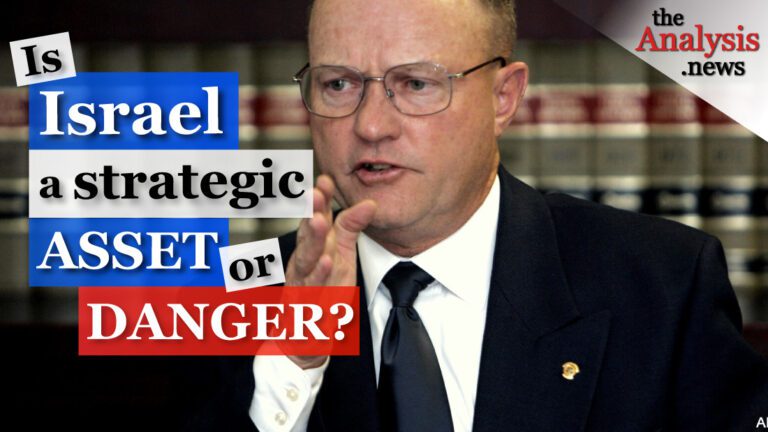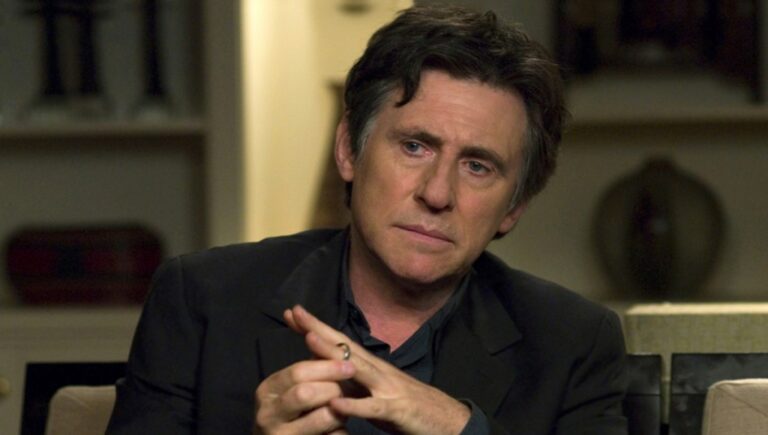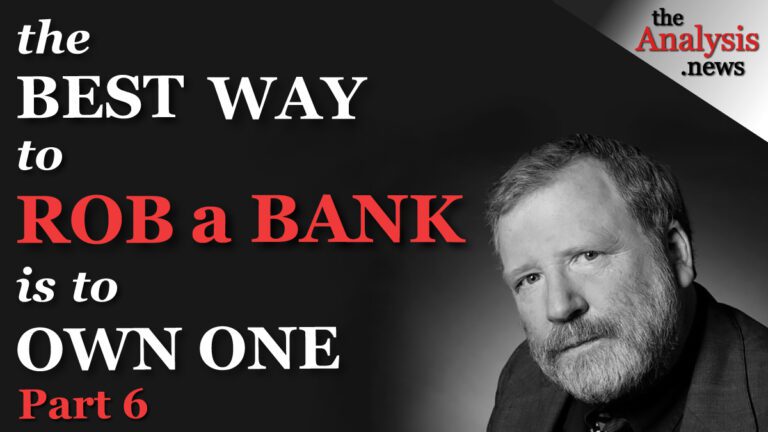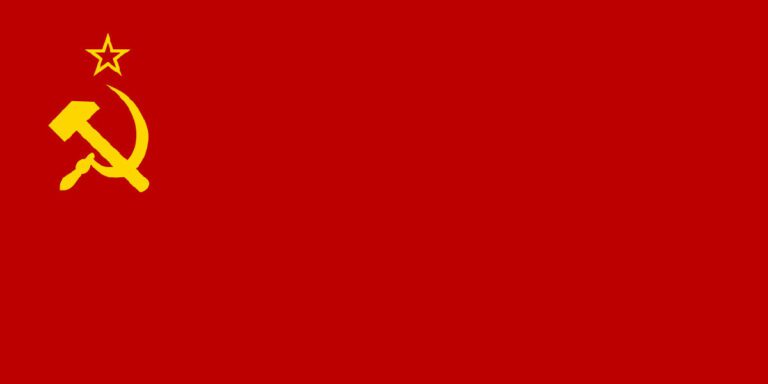Toby Jones tells Paul Jay that the Saudis’ use of terrorism is driven by a fear of democracy and a desire to be the regional and oil hegemon.
This is an episode of Reality Asserts Itself, produced January 15, 2014.
STORY TRANSCRIPT
PAUL JAY, SENIOR EDITOR, TRNN: Welcome to The Real News Network. I’m Paul Jay in Baltimore. And welcome to Reality Asserts Itself.
This is a show where we’re going to examine the role of Saudi Arabia in Middle Eastern and global politics. It’s a rather interesting role that gets very little attention in most mainstream press.
Here’s a little bit of background. In 2002, the joint congressional investigation into 9/11 events, coheaded by Senator Bob Graham, had 28 pages of the report redacted–apparently a decision by the White House and American intelligence agencies.
In those 28 pages, we know those pages dealt with the connection of the Saudi government to the 9/11 conspirators. According to people that have seen those pages–and this was reported in The L.A. Times and The New York Times–the report actually named names of members of the Saudi regime that were involved in financing and assisting the 9/11 conspiracy.
Senator Bob Graham wrote a book after that report, where he came right out and said more or less the same thing but even went further. He said that the Saudis maintain a network of terrorists within the United States after 9/11. We recently interviewed Senator Graham, and he went even further. He gave more of the explanation why and how the Saudis were involved. And you can find that in the interviews.
But that’s not all. In April 2008, Prince Bandar, who used to be the Saudi ambassador to the United States during the Bush era and is now the head of the Saudi national intelligence agency, wrote a letter to Tony Blair demanding that he close down an inquiry into a bribery scandal about British weapons being sold to Saudi Arabia. And apparently Prince Bandar himself was paid a bribe somewhere in the neighborhood of $1 billion, and in writing Tony Blair, Prime Minister Blair, asking him to close down this inquiry, wrote the following. According to The Guardian newspaper, Prince Bandar threatened Tony Blair, demanding he close down the inquiry. Here’s what The Guardian wrote.
“Previously secret files describe how investigators were told they faced”, quote, “‘another 7/7’ and the loss of ‘British lives on British streets’ if they pressed on with their inquiries and the Saudis carried out their threat to cut off intelligence”–a straightforward threat of the use of terrorism.
And more recently, another threat of the use of terrorism, this time Prince Bandar to–this time to President Putin. Quote from The Telegraph newspaper: “I can give you a guarantee to protect the Winter Games next year. The Chechen groups that threaten the security of the games are controlled by us,” end quote, the outright open, overt threats and indirect threats of the use of terrorism as a leverage or lever of Saudi foreign policy.
So what is driving the Saudi agenda? Why are they able to make such and carry out, apparently, allegedly, such threats? And why does the West and most of the media say so little about all of this?
Now joining us to discuss this and the Saudi agenda in the Middle East is Toby Jones. He’s an associate professor of history at Rutgers University, where he specializes in the Middle East. He is the author of the book Desert Kingdom: How Oil and Water Forged Modern Saudi Arabia.
Thanks very much for joining us, Toby.
TOBY C. JONES, ASST. PROF. HISTORY, RUTGERS UNIVERSITY: Thanks, Paul. Good to be with you.
JAY: So this history I just gave, I mean, it’s all out there. This is not some marginal conspiracy stuff. It’s all been in the mainstream press. Senator Bob Graham is not a marginal figure. He was a serious player in American intelligence circles. He codirected the–he was chair of the Senate Intelligence Committee. After he left the Senate, he’s invited by Leon Panetta to be on the CIA external advisory council. This is a real player, this guy. His report is ignored. All these other things he–you know, they get mentioned, maybe, and barely. And now we’re in a situation where the Saudis are one of the main factors fueling civil war in Syria. Their weapons are spilling into Iraq. The recent takeover of Falluja, they’re saying, are weapons the Saudis either deliberately meant to get to Iraq, or they found their way to Iraq. The Saudis are doing everything, it seems, possible to scuttle an American-Iranian deal on nuclear power and nuclear weapons. What is driving the Saudis? And why do they seem to get away with all of this?
JONES: Well, over time, the Saudi, you know, main concern has been self-preservation. But beyond that, they also have had regional ambitions, right? I mean, Saudi Arabia’s links to terrorism, or at least to militant networks, has quite a long history, dating back to at least to the early 1980s, with the anti-Soviet jihad in Afghanistan. But what followed in the ’90s and the first decade of the 21st century, of course, are well known. And you documented some of that, their connections to 9/11, their use of terror, or at least their support for militant networks across North Africa, as well as the part of that, you know, the Arabic-speaking parts of the Middle East, as well as Central and South Asia. You know.
But Saudi Arabia–we shouldn’t assume that Saudi Arabia’s principal interest is simply in spreading terror or supporting militant networks. I mean, I think those are tools or instruments of last resort. They do maintain networks. It’s unclear who exactly in the royal family is most connected, most tightly interwoven. But we know that they’re there, and we know that in many cases it’s probably official in some respect. There are actors, whether it’s Bandar or others within the Saudi political system, that maintains these ties.
So what is it, you ask, that the Saudis are after? Well, the Saudis are after–they’re after deflecting pressures at home. I mean, their first priority is to maintain the privilege and the status of the Royal family. But they want to, you know, ensure over the long term that they remain in power and that they’re not threatened from below.
One way to achieve that, of course, is to focus political energies outward, to deflect attention, to deflect criticism, and to maneuver pieces around the region and around the world in ways that pursue agendas that–sort of outside Saudi Arabia. And this may sound somewhat conspiratorial, but it certainly happened in Afghanistan, happened in Iraq. It’s happening now in Syria.
The Saudis are also–and so, with this in mind, they see multiple potential problems. One is the very real threat of Islamist or militant violence at home. You know, the Saudis have a difficult relationship with al-Qaeda type networks, because those al-Qaeda type networks–jihadis more broadly–not only don’t like the West; they also don’t like regimes like the one in power in Riyadh. So the Saudis are trying to balance out that particularly dynamic.
But the other thing the Saudis are worried about, of course, is the spread of democracy. The popular pressures and popular mobilizations that we’ve seen, you know, appear spectacularly from 2011 going forward. And while the promise of the Arab uprising seems to have faded with a military coup in Egypt and with civil war in Syria and with the petering out of revolutionary moments in Bahrain and Yemen, the Saudis are nevertheless concerned about the real specter of mobilization from below.
And so using terrorism is one instrument to achieve or to deflect both great-power interest, as well as the interests of their own citizens, who might evaluate the risk of terrorist networks gaining power as greater than more democratic or popularly representive ones. On balance, lots of Saudi citizens and others around the region would rather live with the old autocratic network and regimes than they would with the possibility of jihadis running around enjoying more influence [crosstalk]
JAY: And the more the jihadists are running around, the more, in theory, the West needs the Saudis.
JONES: Well, I mean, I think the Saudis–this is the game that they play. Right? I mean, there’s a kind of double talk that goes on in Saudi Arabia and that they use very effectively. And one is they tell their patrons–the United States, the British, and others–that if they don’t remain in a position–but if the Saudis don’t maintain their position in Riyadh as a vanguard in the Arabian Peninsula or on the Arabian Peninsula, then the whole place will succumb to the pressures of jihadi interests and militant networks.
Now, whether that’s true or not, it’s a game that the Saudis play. And then they turn around and they tell their own citizens a version of the same thing, that you need us as a last line of defense against the chaos that might prevail if the jihadis take over, all while the Saudis are covertly, in some cases, overtly in others, supporting materially, financially, militarily, and otherwise precisely the networks that they claim are most dangerous in the region.
JAY: Now, the other point I think you made but I think we should explore more: the Saudis see themselves to be and they have seen they have a right to be the regional superpower, and they see Iran–I don’t know if it’s an existential threat, in the sense they think they’re going to get overthrown by the Iranians–I don’t think that, although I do think they have some concern about the Shia within Saudi Arabia, which apparently is where most of the oil is. But as a rival in the region, some of the language some of their supporters use and the way they use the word Persians daring to have such influence in the Arab world, it leads you–it sounds like some of the most racist kind of rhetoric you could hear when you–I mean, I don’t speak Arabic, but I’ve read some of the translation. But why exactly are the Saudis so–are they really or appear to be so threatened by the Iranians?
JONES: So I think there’s two things–well, there’s three things going on here, and two of them are at the geopolitical level. And so on the one hand, since the late 1970s, most especially during the 1980s, when Ayatollah Khomeini came to power in Iran and began threatening to export Iran’s revolution and he helped set up Radio Tehran, which broadcast directly into the Arabian Peninsula, encouraging Saudis to rise up and overthrow their government–and the Saudis saw Iran as their principal regional rival, as a bad actor, one that could threaten them politically.
I think over the course of the 1990s, after the Iran-Iraq War and after Iran suffered, you know, terrible human loss and political credibility in the region, that the Saudis no longer considered the Iranians capable of undermining them at home. So that geopolitical dimension shifted somewhat.
After the U.S. invasion of Iraq in 2003, the bringing to power of a Shiite government in Iraq, and the assumption that Iran was empowered by default raised a new kind of geopolitical anxiety that the Iranians, who had suffered under American sanctions and under an American policy of containment, had gained a new foothold in the region. Of course, they had maintained a relationship with Hezbollah, as well as with the regime in Damascus. But now having a major player like Iraq in the Iranian–allegedly in the Iranian sphere of influence, as well as, as you mentioned, Shiite citizens in Bahrain, in Saudi Arabia, in Kuwait all potentially falling under the influence of the Iranians as well, the Saudis believe that there was a new–I mean, the Shia crescent is the word that King Abdullah of Jordan used to identify this moment after 2003.
And the Saudis certainly bought in. They’ve supported the principal anxiety or they’ve claimed that their principal anxiety is the rise of Iranian power and the Iranian wish to do them harm, not only inside the Arabian Peninsula, but across the region, to check Saudi Arabia’s relationships, to roll back its power, which, as you mentioned, the Saudis want to augment, not see pushed back.
So those are the two geopolitical levels. And they’re connected, as you mentioned, to the domestic situation.
Saudi Arabia’s oil is located almost entirely on its eastern shores, on the Persian Gulf side of the peninsula, which happens to be home to the country’s Shiite minority population. Somewhere between one and a half and two and a half million people live atop Saudi Arabia’s oil fields, who are a persecuted minority and who in the past have embraced Islamic revolutionary sentiment. They don’t do so today, but the Saudis haven’t really let go of that. They continue to oppress the Shiites, and they see them as a fifth column, as an irredentist threat that would like to secede.
So all of these things–Iran’s past antagonism, the rise or the sense that Shiites across the region are rising to power, and the potential implications of that at home–make the Saudis very nervous.
I would attach one further thing to that, and that’s the political economy of all of this, that aside from all the political and geopolitical anxieties that the Saudis have, remember that the Saudis profit disproportionately more than anybody else from the sale of oil. And the Saudis have to balance out the way oil moves, whether it moves in large quantities or small quantities. And they’ve managed to build a system since the 1970s in which they are the dominant energy player in the Persian Gulf. This is largely or most often explained as a result of their being the single biggest producer, or at least holding the largest amount of oil reserves.
But it’s really more than that. It’s about the Saudis’ ability to manufacture scarcity and to produce oil at their own convenience. If the Iraqis and the Iranians are able to produce at full capacity and challenge Saudi Arabia’s ability to provide, oil prices could drop, the Saudi budget could pay the price, and the privilege and opulence and the security and stability of the Royal family could potentially be [incompr.]
JAY: And the Iranian-Iraqi potential oil output, it’s about the same as Saudi Arabia when you put the two of them together.
JONES: When you put the two of them together, it absolutely is.
JAY: So this is–this Iranian rival is no longer the–you know, Iran pre the fall of Saddam, from the Saudi eyes; this is now a rival that is a real rival in terms of energy output.
JONES: That’s right. That’s absolutely right. So when we keep that in view, then it’s not just an ideological problem. Nor is it just a sectarian problem. There’s also a fundamental political economic component to all of this.
JAY: And the Iranians recently said: as soon as these sanctions are over–and they’re acting as if they’re going to be–they’re going to go to full capacity. And I think there’s a quote from an Iranian official that said, we don’t care if the price of oil goes down to $20 a barrel. That’s enough to set some Saudi and other eyeballs aflame, including Canadians and others that are producing shale oil that–if it’s–goes down–if there’s $20 a barrel oil, you can close down the shale fields.
JONES: That’s right. And remember that there are forecasts that Iraq could bring, you know, six to nine million barrels of oil a day online by the end of this decade, or at least in the 2020s. If that’s the case, that’s rivaling Saudi Arabia’s capacity, which is somewhere between nine to twelve million barrels a day. And there’s not too many people that believe the Saudis can exceed that going forward for long periods of time. So we’re talking about significant rivals to Saudi Arabia as the current energy superpower.
JAY: Okay. Well, we’re going to do a part two of this interview and further explore what’s going on in Syria and the Saudi agenda in these places. But before we do, I want to return to what I was saying in the opening about essentially using the terrorist networks or certain elements of the terrorist networks as a lever in Saudi foreign policy. And we have some documented evidence of it.
But what do you make of the way the Western media almost ignores it? Like, right now you would think at a time when the Saudis were pushing Obama to bomb Syria, when they’re pushing–you know, we have the WikiLeaks thing where the–King Abdullah says cut off the head of the beast, meaning overthrow the Iranian regime, when the Saudis are exerting such pressure on U.S. policy and they are such a serious player–they don’t need AIPAC like the Israelis have to lobby in Congress. They just need $60 billion a year of arms purchases. That speaks rather loudly in Washington. But when all this is going on, how do you make–the Western media just ignores all this history of connection with terrorist tactics.
JONES: Well, it goes beyond–but, I mean, it goes beyond terrorism. You know, American journalists, Western journalists more generally, have never been particularly concerned with the Saudis. When we’re talking about Riyadh’s actions at home and in the region, we’re talking about one of the worst actors in the Middle East. You know, Freedom House rates Saudi Arabia as off-the-charts bad when it comes to civil liberties and political rights inside the Arabian Peninsula. And remember, this is a country that’s used its military forces to undermine popular mobilization in Yemen, as well as in Bahrain. They supported the coup in Egypt. So if we include all of that along with their embracing support for militancy globally, it’s remarkable that this doesn’t grab more attention or demand closer scrutiny or more critical reflection on the part of the Western media.
JAY: So how do you explain it?
JONES: I don’t have a good explanation for it. I mean, on the one hand, you could say historically that it was a problem of access, that both scholars and journalists and others who might be able to do precisely the kind of investigative work that would reveal or yield results on some of this, it’s been hard to come by. The Saudis have been good gatekeepers at keeping people out and dropping the cloak of silence around a lot of their bad behavior. But that’s not the case anymore. There are journalists, and there are good journalists inside Saudi Arabia, and there are lots of scholars who go.
You know, I think that the Saudis have an effective mechanism for blocking off the most critical kind of reflection inside the D.C. policy establishment. And, you know, it’s hard to explain.
So there are journalists and there are others, myself amongst many others, who write publicly and critically about Saudi behavior. The real question is not why doesn’t it get attention. It doesn’t. But, you know, okay.
The other question, I think, that’s more important is: why doesn’t it affect or result in any kind of political change or policy change on the part of the great powers? And here I think, you know, I think the most obvious explanation is the best one. And that is that the Saudis have incredibly deep pockets. Not only did Bandar likely write a letter to Tony Blair; there’s also probably quite a bit of profit in Blair’s decision to help drop an investigation into British aerospace and corruption. The Raytheons and the other big arms manufacturers in the U.S. profit a great deal. We know that they lobby powerfully to maintain a strong relationship with the Saudis.
I think the bottom line in all of this is that no matter how poorly the Saudis behave, they’re able to throw around money in levels and on a scale that’s unprecedented and probably unmatched globally. Remember, from the 1970s going forward, with the rise in oil prices–which, by the way, wasn’t terribly problematic inside the Nixon administration. Kissinger certainly didn’t mind all that much. But we saw the largest transfer of human wealth or wealth in human history to the Arab oil-producing states. And they have used that money incredibly effectively, both to maintain strong strategic relationships, but also in buying favor in Western capitals. And I think that money is the best explanation for why we don’t see more effective kinds of politics or policy when it comes to Saudi Arabia’s bad behavior in the world.
JAY: Okay. Please join us for part two of our interview with Toby Jones on Reality Asserts Itself on The Real News Network.







